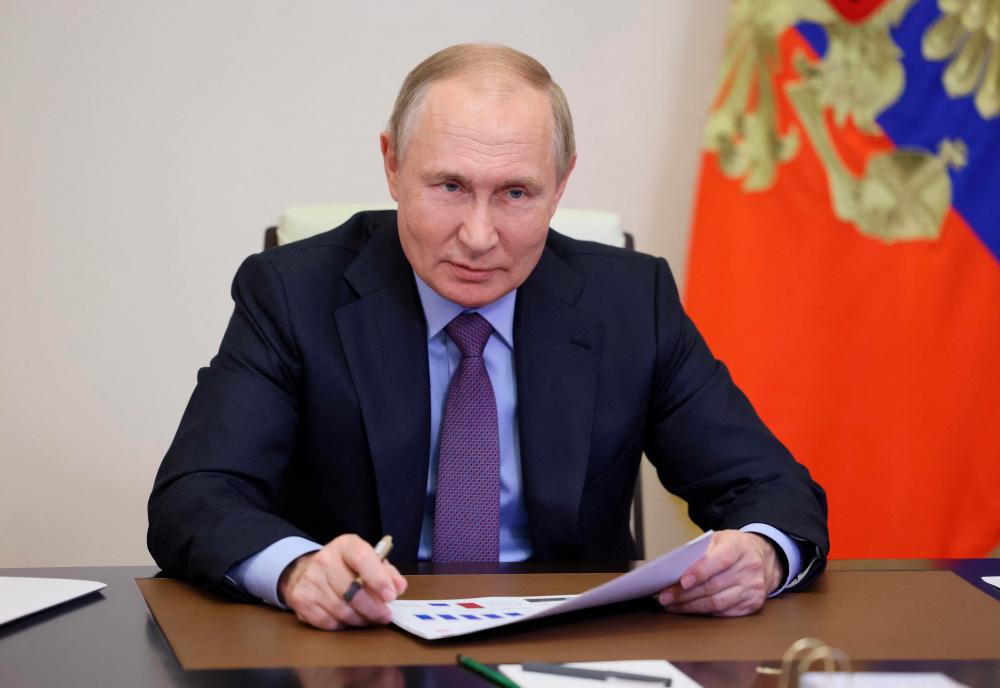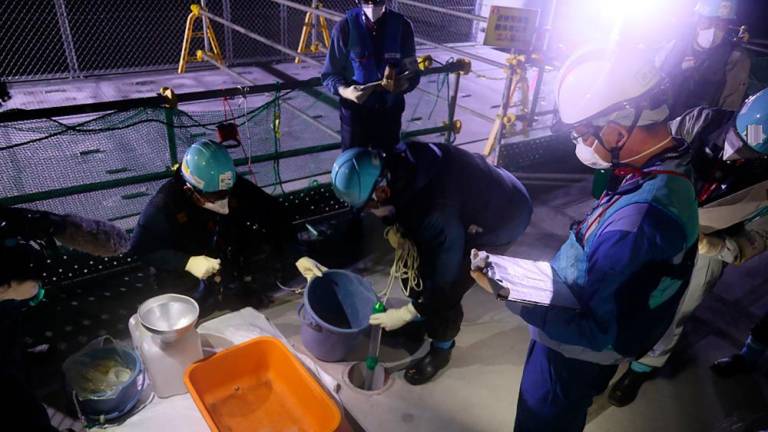MOSCOW: The Russian government on Monday (Jan 30) banned domestic oil exporters and customs bodies from adhering to Western-imposed price caps on Russian crude.
The measure was issued to help enforce President Vladimir Putin's decree of Dec 27 that prohibited the supply of crude oil and oil products from Feb 1, for five months, to nations that abide by the caps.
The Group of Seven economies, the European Union and Australia agreed on Dec 5 to ban the use of Western-supplied maritime insurance, finance and brokering for seaborne Russian oil priced above US$60 (RM255) per barrel as part of Western sanctions on Moscow over its actions in Ukraine.
The new Russian act bans corporates and individuals from including oil price cap mechanisms in their contracts. They also have to report to customs officials and the energy ministry any attempts to impose oil price caps. In addition, customs bodies have to prevent goods from leaving Russia if they find such mechanisms have been applied.
The Western allies plan from Feb 5 to set two caps on Russian oil products, one on products that trade at a premium to crude, such as diesel or gas oil, and one for products that trade at a discount to crude, such as fuel oil.
The Russian government's act also calls on the energy ministry, with the approval of finance ministry, to work out an approach for monitoring prices of Russian oil exports by March
Meanwhile, Asian markets are showing no let-up in their demand for Russian oil, absorbing a big rise in seaborne exports of Urals crude this month and helping Moscow cope even as most Western buyers stay away, according to traders’ and Refinitiv Eikon data.
At least 5.1 million tonnes of Urals are being shipped from Russia’s European ports of Primorsk, Ust-Luga and Novorossiysk to Asia in January, the data show.
The final destinations for another 1.9 million tonnes of the grade have yet to be identified, but traders expect most of them will also end up in India or China.
As a result, Urals crude loadings bound for Asia in January could reach some 7 million tonnes, up by some 2 million tonnes from December, according to Reuters calculations.
Turkey and Bulgaria remain the only buyers of the grade in Europe’s seaports, the data show.
The rise in Urals shipments to Asia comes amid a general increase in Russia's seaborne oil supplies. Crude loadings from Primorsk and Ust-Luga this month are set to rise 50% from December to above 7 million tonnes - the highest in four years.
Urals supplies for ship-to-ship transfers for further deliveries to Asia in January are expected to reach at least 1.4 million tonnes. – Reuters













